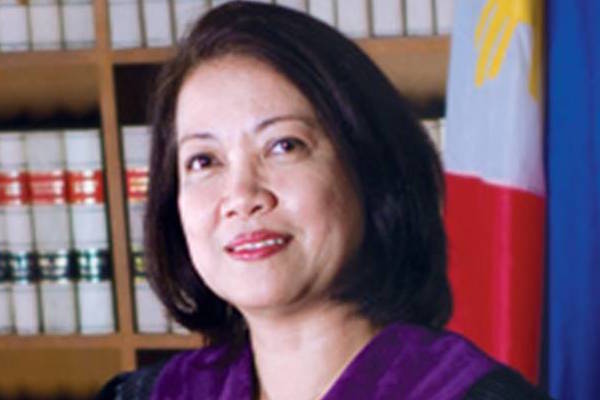
May 30, 2018 | News
As Chief Justice Maria Lourdes Sereno filed a motion today to reconsider the Supreme Court’s 11 May 2018 decision to remove her from the Court, the ICJ expressed its grave concern that the proceedings in the case had contributed to an overall deterioration in the rule of law in the country.
Sereno’s removal comes on the heels of a series of public statements by President Rodrigo Duterte attacking the Chief Justice, including direct threats to seek her removal from the Court.
The ICJ and other national and international observers have repeatedly and publicly condemned these attacks.
Her removal, through the contrivance of a judicial ruling by a sharply divided Court, adds to the perception that the government institutions are unable or unwilling to safeguard the rule of law, and will attack the institutions that protect it.
“Preserving the independence of the judiciary in the Philippines is crucial at a time when the government is credibly alleged to have been engaged in widespread and systematic human rights violations, amounting to crimes under international law,” said Frederick Rawski, Asia Pacific Director for the ICJ.
“Given the perception of political interference and the potential impact of this case on the credibility of the judiciary as a whole, it is imperative that the Court swiftly and fairly consider the Chief Justice’s motion for reconsideration,” he added.
The removal decision came in response to a quo warranto petition filed by the Solicitor General, the government’s foremost counsel.
The petition sought to nullify her appointment on the grounds that she had failed to comply with disclosure requirements, despite the fact that her qualifications had already been certified as sufficient by the Judicial and Bar Council when her name was included in the short-list submitted to the president for consideration.
The decision superseded ongoing impeachment proceedings in the Congress.
The ICJ raised concerns that the decision could open the floodgates to similar attacks, not only against members of the Court, but to members of the judiciary and other bodies, such as the Philippine Commission on Human Rights.
It called on the Supreme Court to take care to ensure that any proceedings are conducted in line with the highest standards of judicial ethics, as reflected in the international standards such as the Bangalore Principles of Judicial Conduct.
The ICJ also reminded the government of the Philippines that under international standards – including the UN Basic Principles on the Independence of the Judiciary – the judiciary, including individual judges, must be able to conduct itself without “improper influences, inducements, pressures, threats or interferences, direct or indirect… for any reason.”
It is a responsibility of both the judiciary and the political branches of government to ensure that this principle is respected.
Contact
Emerlynne Gil, Senior International Legal Adviser for Southeast Asia, t: +662 619 8477 (ext. 206) ; e: emerlynne.gil@icj.org
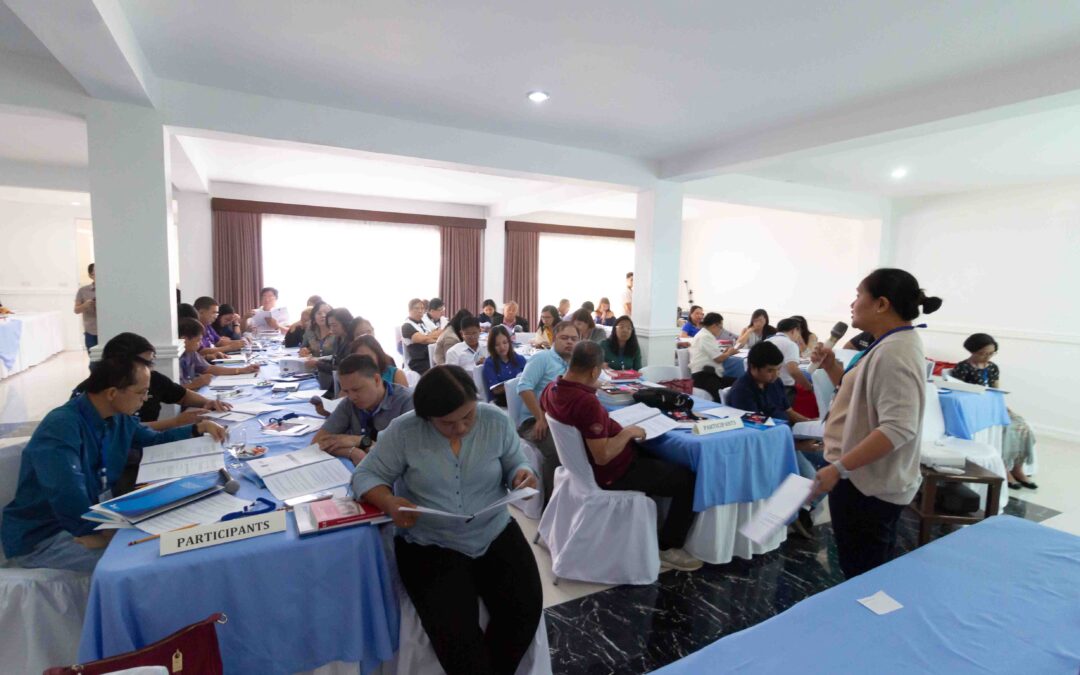
May 26, 2018 | News
Today, the ICJ and the Integrated Bar of the Philippines (IBP) concluded a two-day workshop on eliminating gender discriminatory attitudes and behaviours towards women with a commitment to step up efforts on the protection of rights of women in the country.
Participants at the workshop were lawyers from IBP’s legal aid committees from the Eastern and Western Visayas Regions.
The workshop was held in Bohol from 25 to 26 May 2018.
“Legal aid providers are at the frontline of assisting women in accessing justice,” said Frederick Rawski, ICJ’s Regional Director for Asia and the Pacific.
“It is critical that they are able to immediately detect discriminatory conduct against the women they are assisting and help in eliminating such discrimination,” he added.
Recourse to gender stereotypes in the administration of justice widespread in the Philippines and they impact women’s access to justice.
Participants at the workshop noted, in this respect, examples such as the belief that women, unlike men, are weak in the physical and cognitive sense, and the ‘virtuous-or-good-woman-versus-bad-woman-or slut’ stereotype that are still reflected in law and court decisions in Philippines.
It was noted that the UN Committee on the Elimination of Discrimination against Women had emphasized that “stereotyping and gender bias in the justice system have far-reaching consequences for women’s full enjoyment of their human rights.”
The discussions during the two-day workshop also focused on strengthening the capacity of legal aid providers to further enhance access to justice of women whose loved ones and relatives had been extra-judicially killed.
Atty. Abdiel Dan Fajardo, National President of the IBP addressed the ongoing extrajudicial killings and culture of impunity in the Philippines that affects women particularly.
He said: “Without combatting the culture of impunity, legal aid lawyers cannot enhance access to justice for women. Therefore, it is high time to bolster the knowledge and awareness of legal aid lawyers in combatting impunity that affect women and their children.”
It was recalled that the remarks of the UN Special Rapporteur on extrajudicial, summary, or arbitrary executions, Agnes Callamard, in her report to the Human Rights Council in 2017, stressed that women are particularly affected by the extrajudicial killing of their partners and other family members.
The Special Rapporteur noted that in the Philippines, since majority of the victims are men, their female partners, “by virtue of their gender-based roles, are left to confront the associated stigma, fear, insecurity and economic deprivation, in addition to the burdens of identifying and burying their dead loved ones and seeking justice.”
At the Bohol workshop, ICJ and IBP also signed a Memorandum of Agreement to commence joint work on strengthening the IBP’s National Center for Legal Aid (NCLA).
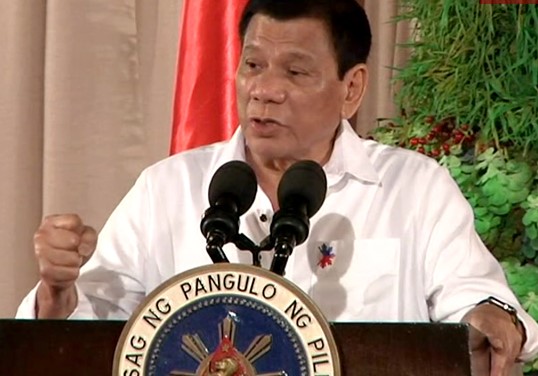
Apr 10, 2018 | News
The ICJ today condemned a threatening statement made by Philippine President Rodrigo Duterte attacking Chief Justice Maria Lourdes Sereno of the Philippines Supreme Court.
The ICJ said that the President’s remarks constituted an assault not just on the Chief Justice, but on the independence of the judiciary in the country.
The ICJ urged President Duterte to respect judicial independence and not to exert political pressure on any government official or agency to undermine the independence of the judiciary.
In a press conference on 9 April 2018, President Duterte told reporters: “I’m putting you on notice that I’m your enemy and you have to be out of the Supreme Court.”
He also called on the House of Representatives to expedite impeachment proceedings presently underway against Chief Justice Sereno.
“It is absolutely unacceptable for President Duterte to make such a statement not only because it constitutes direct intimidation of the Chief Justice, but the chilling effect it may have on other independent judges who carry out their professional duties,” said Emerlynne Gil, Senior International Legal Adviser of ICJ.
“By expressing his personal feelings against the Chief Justice and by directing the House of Representatives to accelerate the impeachment proceedings, the President is actively influencing and interfering with the functions of other co-equal branches of government,” Gil added.
The ICJ reminds President Duterte that as enunciated in the UN Basic Principles on the Independence of the Judiciary, “[i]t is the duty of all governmental and other institutions to respect and observe the independence of the judiciary.”
The Principles affirm that the judiciary must be able to carry out its work “without any restrictions, improper influences, inducements, pressures, threats or interferences, direct or indirect, from any quarter or for any reason.”
The ICJ strongly urges President Duterte to retract his comments and to refrain in the future from making any statements attacking individual judges or in any way interfering with the independence of the judiciary.
Contact
Emerlynne Gil, Senior International Legal Adviser, t: +662 619 8477 (ext. 206) ; e: emerlynne.gil@icj.org.
Background
In September 2017, two impeachment complaints against the Chief Justice were filed before the Committee of Justice of the House of Representatives, the Lower House of Congress.
The Committee of Justice approved only one of the complaints, which is scheduled to be put before the plenary of the House of Representatives in May 2018 when Congress resumes its session.
If it obtains one-third vote of all members in the House of Representatives, the articles of impeachment will be transmitted to the Senate, which is the Upper House of Congress.
Any impeachable officer may be removed from office by a vote of two-thirds of all the members of the Senate sitting as the impeachment court.
Some of the points raised in the approved impeachment complaint are the Chief Justice’s failure to report certain income in her statements of assets, liabilities and net worth (SALN), allegations of use of public funds to finance her extravagant and lavish lifestyle, and manipulation of judicial appointments for personal and political reasons, among others.
The Chief Justice maintains she correctly filed her SALNs. She also further claims that the other allegations in the impeachment complaint are baseless or mere fabrications.
In March 2018, the Philippines’ Solicitor General Jose Calida filed a petition before the Supreme Court questioning the Chief Justice’s appointment due to her alleged failure to fully disclose her wealth. Oral arguments on this petition were made on 10 April 2018.
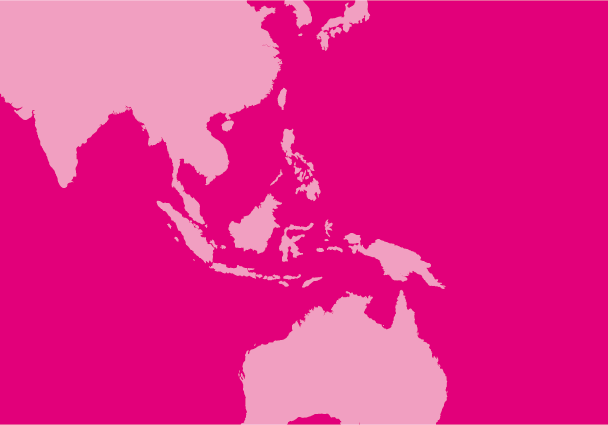
Feb 8, 2018 | News
A proposed new law regulating public assembly adopted by the Philippine House of Representatives would allow for unlawful restrictions on the right to peaceful assembly, the ICJ said today.
On 5 February 2018, the House of Representatives passed on third reading House Bill 6834, which proposes to repeal the Public Assembly Act of 1985.
The law would prohibit persons below the age of 15 from organizing a public assembly and would subject participants or organizers to potential criminal liability for holding a peaceful assembly without the approval of local executives.
“This legislation deceives us into thinking that there is no more need to obtain prior permission to holding a public assembly,” said Emerlynne Gil, ICJ’s Senior International Legal Adviser for Southeast Asia.
“But in effect, organizers will still need to secure the approval of the local executive before holding a public assembly,” she added.
The proposed law states that any person or group intending to organize a public assembly will only need to serve notice to the city or municipal mayor at least three days prior to the assembly without having to secure a permit.
However, at the same time it prohibits the “holding of a public assembly at a time and place other than that approved by the city or municipal mayor.”
“The proposed law does not improve on the old one. It now increases the penalty for holding a public assembly without approval of local authorities to six (6) years,” Emerlynne Gil said.
“The law is also silent as to who may be penalized. Hence, the ICJ fears that organizers and participants alike could be held liable,” she added.
Under international standards, freedom of people to assemble should generally not require prior permission.
The law would also contravene the rights of children that are protected under the Philippines’ legal obligations.
“The provision incorporates into law the arcane and discredited attitude that ‘children should be seen but not be heard’,” said Emerlynne Gil.
“If children are prohibited from organizing a peaceful assembly, this prevents them from exercising their right to impart information freely,” she added.
Under the Convention on the Rights of the Child, children must be guaranteed the right to freedom of assembly.
The bill now goes to the Philippine Senate for its consideration.
The ICJ calls on lawmakers in the Philippines not to adopt the proposed law in its current form.
Any new legislation should conform to international standards, including on the right to freedom of assembly without prior permission and the rights of children to assemble freely, the ICJ adds.
Contact
Emerlynne Gil, Senior International Legal Adviser for Southeast Asia, tel. no. +662 619 8477 (ext. 206); e: emerlynne.gil(a)icj.org
Philippines-Public assembly act 1985-News-Web stories-2018-ENG (Full story in PDF)
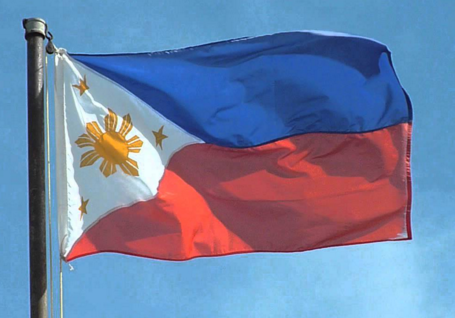
Jan 18, 2018 | News
The ICJ today expressed concern about the impacts on freedom of expression of a decision by the Securities and Exchange Commission (SEC) that would shut down Rappler, an online news source in the Philippines.
On 11 January, after a year-long investigation, the SEC of the Philippines revoked the Certificate of Incorporation of Rappler, Inc.
The ICJ is concerned that the decision to target Rappler may have been retaliatory and politically motivated.
The investigation was initiated by a letter transmitted by the Solicitor General to the SEC requesting the latter to investigate allegations of foreign ownership of Rappler, Inc.
“The cancellation of the Certificate of Incorporation of Rappler, Inc. constitutes a significant restriction on freedom of expression,” said Emerlynne Gil, ICJ’s Senior International Legal Adviser.
“The Courts must give rigorous scrutiny both to the specific basis the authorities offer for the decision concerning Rappler, Inc., and the scope and application of the foreign equity provision more generally, including an inquiry whether the law is being applied in a proportionate and non-discriminatory manner,” she added.
If such restrictions on freedom of expression are enforced with the actual aim of punishing or preventing critical political expression, or are enforced only against some political or other opinions and not others, this would violate the rights to freedom of expression and non-discrimination under the Philippine Constitution and international human rights law, the ICJ adds.
Further, under international human rights law any restriction on freedom of expression must be limited to what is necessary and proportionate both in relation to the legitimate aim it pursues and in relation to its impacts.
For instance, it would not be consistent with international human rights law to prohibit all foreign ownership of mass media or mass-media-owning entities, unless the government was able to demonstrate that the same legitimate aim could not reasonably be achieved by prohibiting only majority foreign ownership.
Contact
Emerlynne Gil, ICJ Senior International Legal Adviser for Southeast Asia, t: +662 619 8477 (ext. 206) ; e: emerlynne.gil@icj.org
Philippines-Rappler-News-Web stories-2018-ENG (Full text in PDF)









